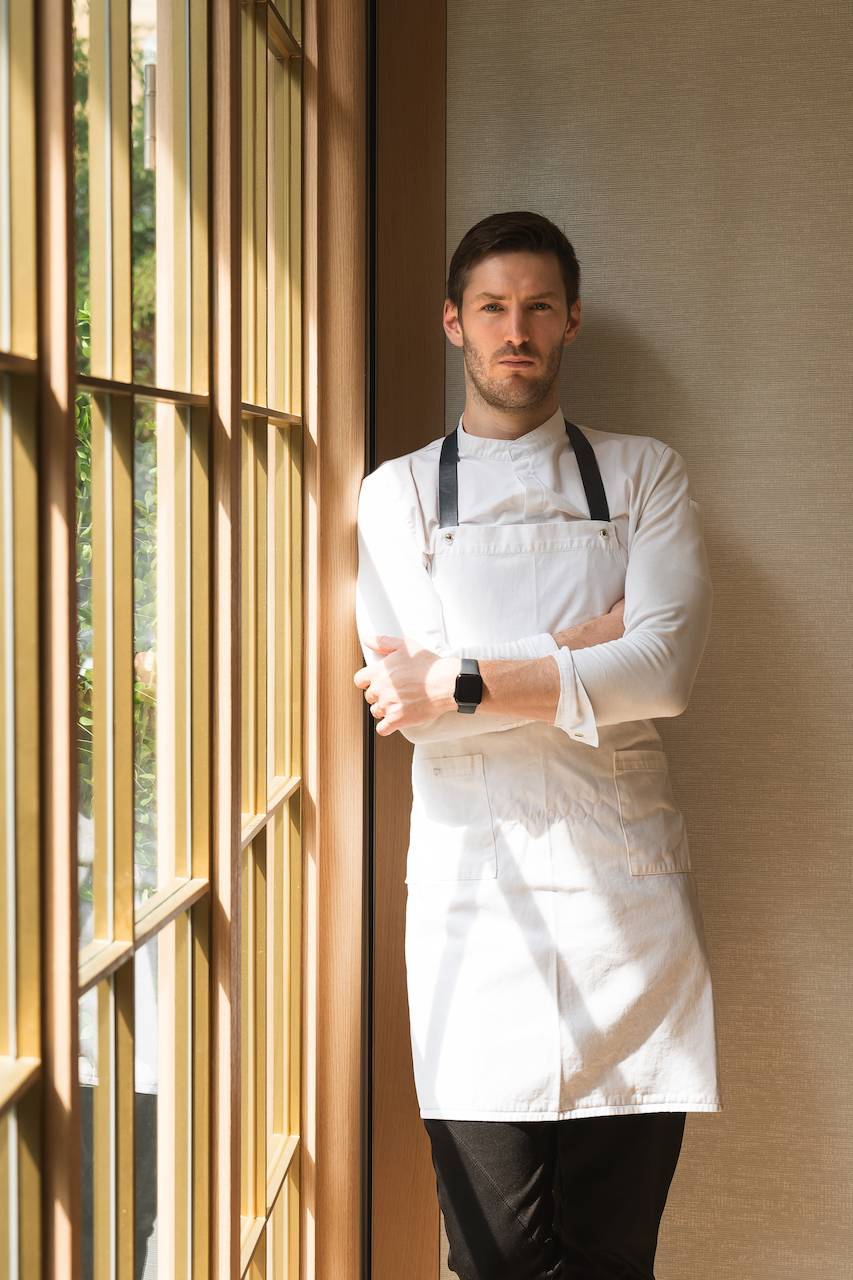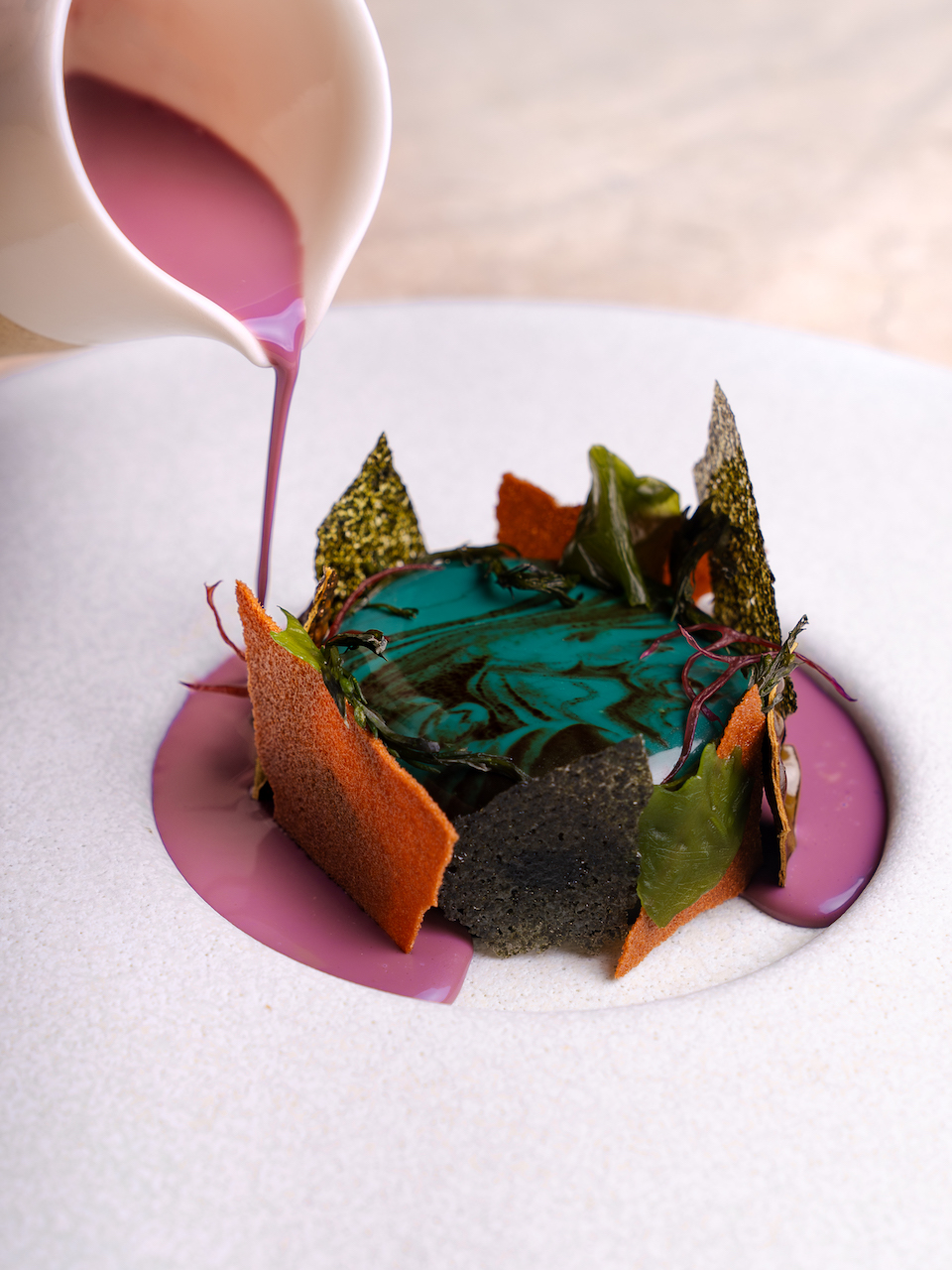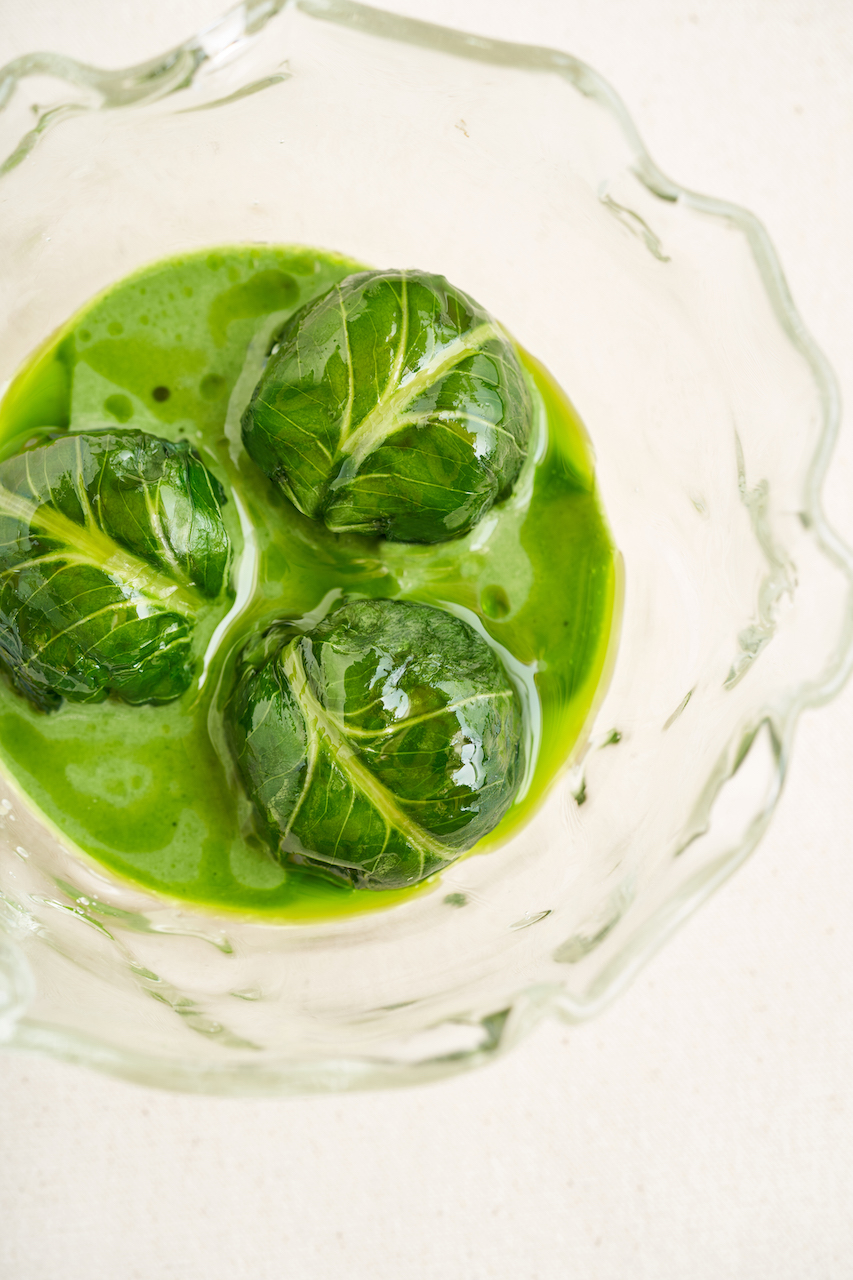The debut season of Netflix’s Culinary Class Wars saw 80 ‘Black Spoon’ chefs – up-and-coming chefs – go up against 20 ‘White Spoon’ chefs – established, award-winning chefs – for a chance to win the title of champion.
Among the contestants was ‘White Spoon’ chef Joseph Linderwood, known for his use of Korean ingredients to make creative dishes from a non-Korean perspective. He faced a tough battle in the second round, losing to a Black Spoon chef in a nail-biting cook-off.

Joseph Lidgerwood, an Australian-born chef with a deep appreciation for diverse ingredients and cultures, has always embraced a spirit of adventure in his culinary career. From his early days working at renowned fine-dining establishments like The French Laundry in Napa and The Ledbury in London, to launching pop-up restaurants in cities like New York, Hong Kong, and Yangon, Joseph has continually pushed the boundaries of his craft.
Now based in Seoul, where he runs one-Michelin-starred restaurant EVETT, Joseph’s approach to food has captivated the international dining scene with his exclusive use of Korean ingredients. Essentially, he serves creative dishes from a non-Korean perspective. EVETT was honoured with a Michelin star in the 2020 Guide a year after its opening, and has since retained this accolade. Joseph was also winner of the 2021 MICHELIN Blancpain Young Chef Award.

When the chef competed on Culinary Class Wars earlier this year, he faced a challenge that pushed even his seasoned skills: time. “At EVETT, we’re always developing recipes and testing them over time, but in the competition, you have to cook what you know and pull ideas together quickly,” Joseph explains. Despite the pressure, he showcased Korean ingredients in a way that stayed true to his philosophy of respecting cultural roots while embracing creativity.
He faced off “Cooking Maniac”, Chef Nam No Yoon in the White vs Black Spoon face-off in Episode Five, spotlighting the Conger Eel. While he ultimately lost the challenge, he came up with the “담백한 바다장어” which roughly translates to “Light (taste) Conger Eel”, complete with sesame sauce, perilla leaf oil, Korean wild black raspberries wine and apples.
On his Instagram page, he reflected: “Honestly after this show I was disappointed. I wanted to show my best and I have a lot of opinions on how this show and how it was run.” However, he also notes some positive takeaways and goals for the future. He had high praise for the chefs who participated in this show. “All Black Spoon and White Spoon chefs were excellent, and honestly have become great friends. Win, lose or draw, what I admire most is that Korea is on the rise, and we are on the center stage. Let’s keep pushing together to show how great this country is!”

For Joseph, the competition was not just a test of skill but an opportunity for growth. “It’s good to push yourself out of your comfort zone. Some of my peers passed on the project due to the risks involved, but I found it rewarding. Sometimes you win, and sometimes you learn,” he reflects. One of the dishes that particularly caught his attention was a zero-waste creation by his friend, Chef Kim Bong Su, which highlighted the humble cabbage — a dish that Joseph still wishes he could have tried.
His experience on the show reaffirmed the balance he strikes between creativity and his restaurant’s identity. “We have an identity at EVETT. We know what is and what isn’t an EVETT dish. It’s taken time to develop, but this framework allows us to experiment while staying true to our roots,” he says. The experience didn’t drastically change Joseph’s approach to cooking but reinforced his belief in the potential of elevating Korean ingredients. Ultimately, he believes that hard work, and a good framework is what helps him to balance creativity with staying true to his food philosophy.
___
Interview and story by: Jocelyn Tan
Photos: Netflix Korea
